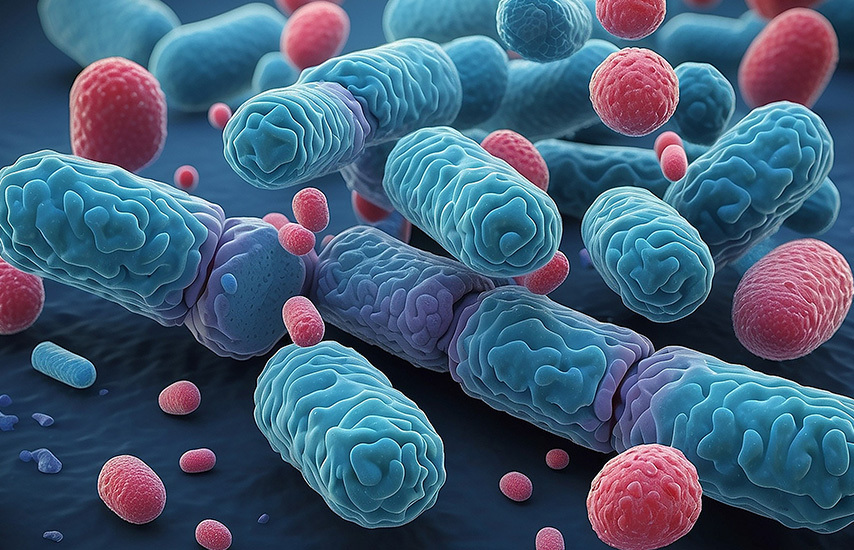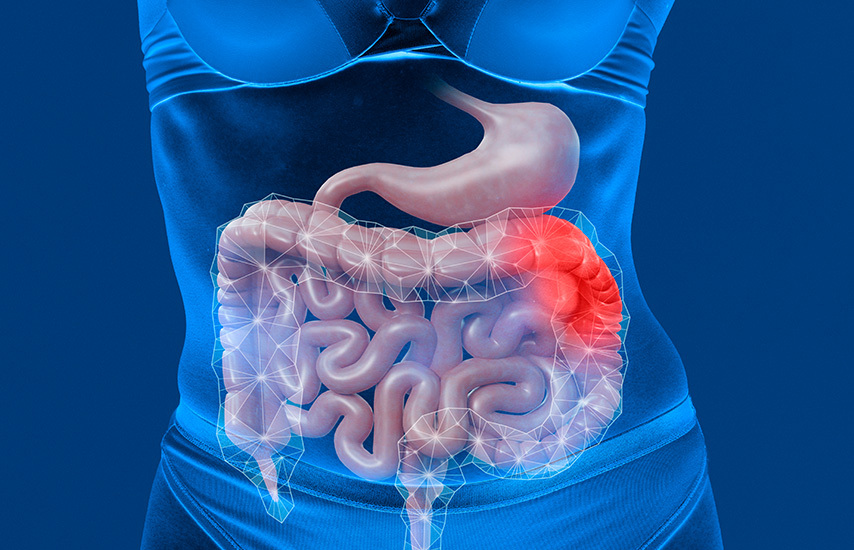Unlocking the Power of Bifidobacterium Infantis: A Comprehensive Guide

Curious about the remarkable benefits of Bifidobacterium Infantis? In this guide, we’ll uncover the secrets of this powerhouse probiotic and how it can transform your gut health and overall vitality. From its natural occurrence to its significant role in maintaining a balanced microbiome, Bifidobacterium Infantis holds the key to digestive wellness and immune support.
What Is Bifidobacterium Infantis?
Bifidobacterium Infantis, affectionately known as B. Infantis, stands out for its profound impact on health, particularly in low birth weight infants and breastfed infants. This beneficial bacterium thrives in breast milk, containing essential human milk oligosaccharides that nourish and fortify the gut microbiota of infants. From the earliest stages of development, B. Infantis lays the groundwork for a resilient gut environment, crucial for the health of premature infants and those born with low birth weights.
As infants receive breast milk, they also receive a wealth of Bifidobacterium Infantis, a key player in shaping the breastfed infant gut microbiome. This symbiotic relationship between breast milk and B. Infantis sets the stage for optimal intestinal function, providing a protective shield against harmful pathogens and bolstering immune responses. For premature infants, especially those with low birth weights, B. Infantis in breast milk offers invaluable support in developing a robust gut microbiome, essential for overall health and well-being.
Bifidobacterium Infantis is vital throughout infancy and beyond to promote digestive health, strengthen the immune system, and contribute to overall wellness. Its presence in breast milk underscores its significance in nurturing the health of infants, particularly those born prematurely or with low birth weights. By fostering a harmonious relationship between the gut microbiota and the developing immune system, B. Infantis lays a foundation for lifelong health and vitality.
The Benefits of Bifidobacterium Infantis
Bifidobacterium Infantis offers a myriad of benefits that extend beyond basic digestive support. Let’s delve into some of its remarkable effects on digestive health, immune function, and mental well-being:
- Digestive health. As a member of the Bifidobacterium longum subspecies infantis family, Bifidobacterium Infantis plays a crucial role in maintaining a healthy intestinal microbiota. By supporting the growth of beneficial bacteria and inhibiting the proliferation of harmful microbes, it helps to promote optimal digestive function and regularity. Additionally, Bifidobacterium Infantis produces short-chain fatty acids, contributing to intestinal health and may help prevent intestinal barrier dysfunction.
- Immune support. The presence of Bifidobacterium Infantis in the gut microbiome is closely linked to immune development and function, particularly in infants and young children. By modulating the immune response and promoting intestinal and immune development, this probiotic strain helps to enhance overall immune function and resilience against infections.
- Mental well-being. Emerging research suggests a strong connection between gut and mental health, often called the gut-brain axis. Bifidobacterium Infantis has been shown to influence this axis positively, contributing to mental well-being and emotional balance. Producing neurotransmitters such as serotonin, often called the “happiness hormone,” may help regulate mood and reduce symptoms of stress and anxiety.
Bifidobacterium Infantis offers multifaceted benefits for digestive health, immune support, and mental well-being. Incorporating this beneficial probiotic strain into your daily routine through natural sources or dietary supplements can support overall health and enhance your quality of life.
Sources and Forms of Bifidobacterium Infantis

When incorporating B. Infantis into your daily routine, various sources and forms are available, each offering unique benefits. Here’s a breakdown of the different options:
Natural sources. B. Infantis naturally occurs in healthy individuals’ gut microbiome, particularly in exclusively breastfed infants. Breast milk is an abundant source of this beneficial probiotic strain, providing newborns with essential nutrients and supporting the development of a diverse intestinal flora. Additionally, certain fermented foods may contain trace amounts of Bifidobacterium Infantis, although their potency can vary.
Dietary supplements. A dietary probiotic supplement offers a convenient and reliable option for those looking to boost their intake of Bifidobacterium Infantis. These supplements are available in various forms, including capsules, powders, and liquid formulations.
Consideration of dosage and frequency. The recommended dosage of B. Infantis may vary depending on individual needs and health goals. Age, gestational age, and overall health status should be considered when determining the appropriate dosage.
How to Incorporate Bifidobacterium Infantis into Your Routine
Incorporating this probiotic strain into your daily routine can be a beneficial step towards enhancing your gut health and overall well-being. Here are some practical tips for integrating this beneficial probiotic into your lifestyle:
- Choose probiotic supplements wisely. Look for probiotic supplements that specifically mention Bifidobacterium Infantis as one of the strains. Check the label for other lactic acid bacteria and probiotic strains that support gut health.
- Consider dosage and frequency. Consult with a healthcare professional to determine the appropriate dosage and frequency of Bifidobacterium Infantis supplementation. Age, health status, and specific health goals may influence the recommended intake.
- Incorporate fermented foods. Fermented foods like yogurt, kefir, and sauerkraut are natural sources of beneficial bacteria, including Bifidobacterium Infantis. Adding these foods to your diet can help support a healthy intestinal tract and promote the growth of intestinal cells.
- Opt for infant-friendly formulas. Consider using infant formula fortified with Bifidobacterium Infantis for infants not exclusively breastfed. These formulas are specially designed to support the nutritional needs of healthy infants and promote intestinal and immune development.
- Maintain a balanced diet. A fiber-rich diet, fruits, vegetables, and whole grains can provide essential nutrients supporting healthy intestinal flora growth. Pairing this diet with probiotic-rich foods ensures a diverse and robust gut microbiome.
Although Bioma may not include Bifidobacterium infantis, it shares the same genus as this beneficial bacteria, offering a range of probiotic strains tailored for adult gut health. It offers a blend of probiotic strains like Bifidobacterium breve, lactis, longum, and other beneficial components like XOS and tributyrin. This comprehensive formulation targets various aspects of gut health, including promoting a balanced microbiome, supporting intestinal epithelial function, and reducing excessive intestinal inflammation.
With Bioma, you can effectively manage irritable bowel syndrome (IBS) symptoms, inhibit harmful bacteria, and maintain overall intestinal integrity. It’s a solution that contributes to better gut health and overall well-being, making it a valuable addition to your daily routine.
Precautions and Potential Side Effects

Before integrating Bifidobacterium Infantis or any probiotics, it’s crucial to understand potential precautions and side effects. While generally safe, probiotics may affect individuals differently, particularly those with certain health conditions.
- Individuals with a history of human clinical disease, such as autoimmune disorders or gastrointestinal conditions, should also exercise caution. Although probiotics may offer beneficial metabolic effects and contribute to gut barrier integrity, they may interact with medications or exacerbate existing conditions.
- Monitoring for changes in stool consistency or gastrointestinal discomfort is important, especially for those experiencing a significant decrease in symptoms. Any persistent issues should prompt a consultation with a healthcare provider.
Furthermore, while Bifidobacterium Infantis and other probiotics are generally safe, more research is needed on their long-term effects, particularly bacterial colonization and overall beneficial metabolic effects.
Conclusion
B. Infantis offers significant potential for supporting gut health and overall well-being. From promoting gut barrier integrity to exhibiting anti-inflammatory properties, this probiotic has numerous benefits.
Considering individual factors such as age, health status, and specific health goals is essential when incorporating probiotics into one’s routine. Whether through dietary sources or oral probiotics, maintaining a balanced approach to supplementation is key to maximizing the benefits of Bifidobacterium Infantis.
Sources:
- Whorwell, P. J., Altringer, L., Morel, J., Bond, Y., Charbonneau, D., O’mahony, L., … & Quigley, E. M. (2006). Efficacy of an encapsulated probiotic Bifidobacterium infantis 35624 in women with irritable bowel syndrome. Official journal of the American College of Gastroenterology| ACG, 101(7), 1581-1590.
- Underwood, M. A., German, J. B., Lebrilla, C. B., & Mills, D. A. (2015). Bifidobacterium longum subspecies infantis: champion colonizer of the infant gut. Pediatric research, 77(1), 229-235.
- Chichlowski, M., Shah, N., Wampler, J. L., Wu, S. S., & Vanderhoof, J. A. (2020). Bifidobacterium longum subspecies infantis (B. infantis) in pediatric nutrition: current state of knowledge. Nutrients, 12(6), 1581.
Related articles



